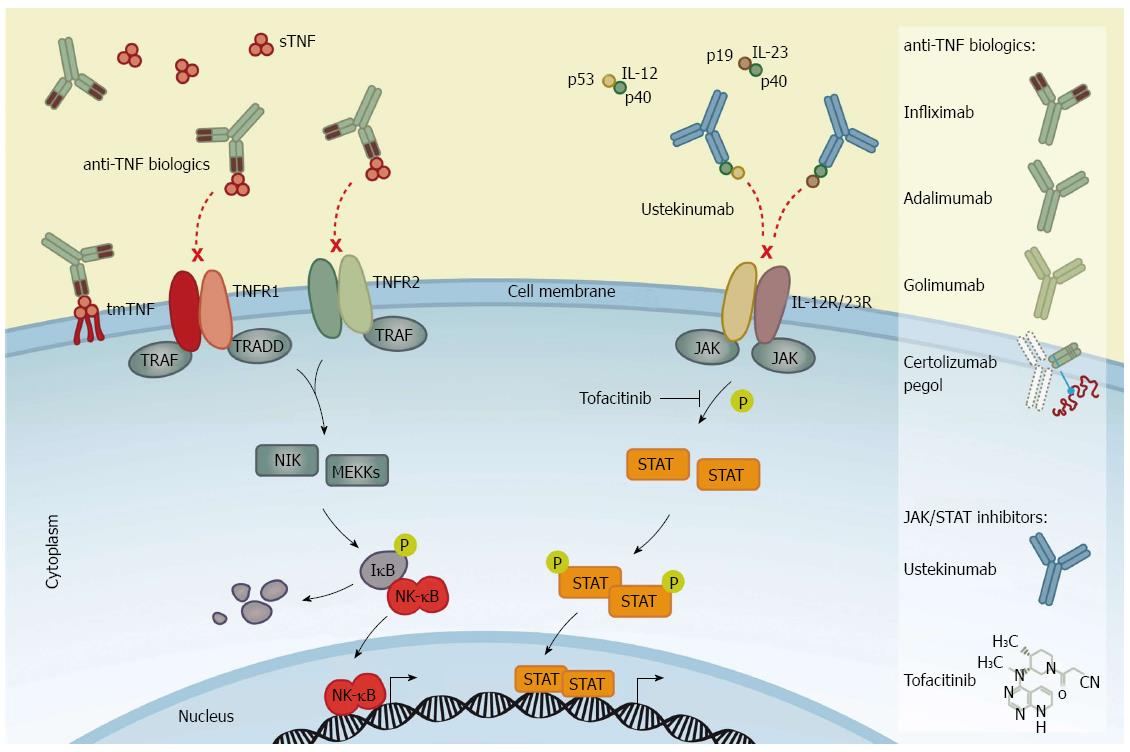Copyright
©2014 Baishideng Publishing Group Co.
World J Gastroenterol. Jan 7, 2014; 20(1): 64-77
Published online Jan 7, 2014. doi: 10.3748/wjg.v20.i1.64
Published online Jan 7, 2014. doi: 10.3748/wjg.v20.i1.64
Figure 1 Mechanism of action of anti-tumor necrosis factor biologics and inhibitors of Janus kinase/signal transducer and activator of transcription signaling.
Left panel: Anti-tumor necrosis factor (TNF) biologics bind to homotrimeric TNF-α [transmembrane (tmTNF-α) and/or soluble (sTNF-α)], thereby blocking the interaction between the cytokine and TNF-α receptor type 1 and 2 (TNFR1 and TNFR2) to neutralise TNF-α-mediated pro-inflammatory signaling. Infliximab is shown as a representative anti-TNF biologics to illustrate the mechanism of action of the four agents labeled for IBD: Infliximab (a chimeric antibody), adalimumab and golimumab (fully human antibodies), and certolizumab pegol (a pegylated Fab fragment of a humanised anti-TNF antibody). Right panel: The fully human antibody against interleukin (IL)-12/23, ustekinumab, binds to the common p40 subunit of IL-12 and IL-23 heterodimers and prevents the interaction of IL-12 and IL-23 with their cognate receptors, IL-12R and IL-23R, hence neutralising IL-12/23-mediated intracellular signaling. Tofacitinib is a small molecule inhibitor of Janus kinase (JAK) activity that prevents the JAK-dependent phosphorylation of signal transducer and activator of transcription (STAT) proteins and subsequently the STAT-induced transcription of pro-inflammatory target genes.
- Citation: Pedersen J, Coskun M, Soendergaard C, Salem M, Nielsen OH. Inflammatory pathways of importance for management of inflammatory bowel disease. World J Gastroenterol 2014; 20(1): 64-77
- URL: https://www.wjgnet.com/1007-9327/full/v20/i1/64.htm
- DOI: https://dx.doi.org/10.3748/wjg.v20.i1.64









